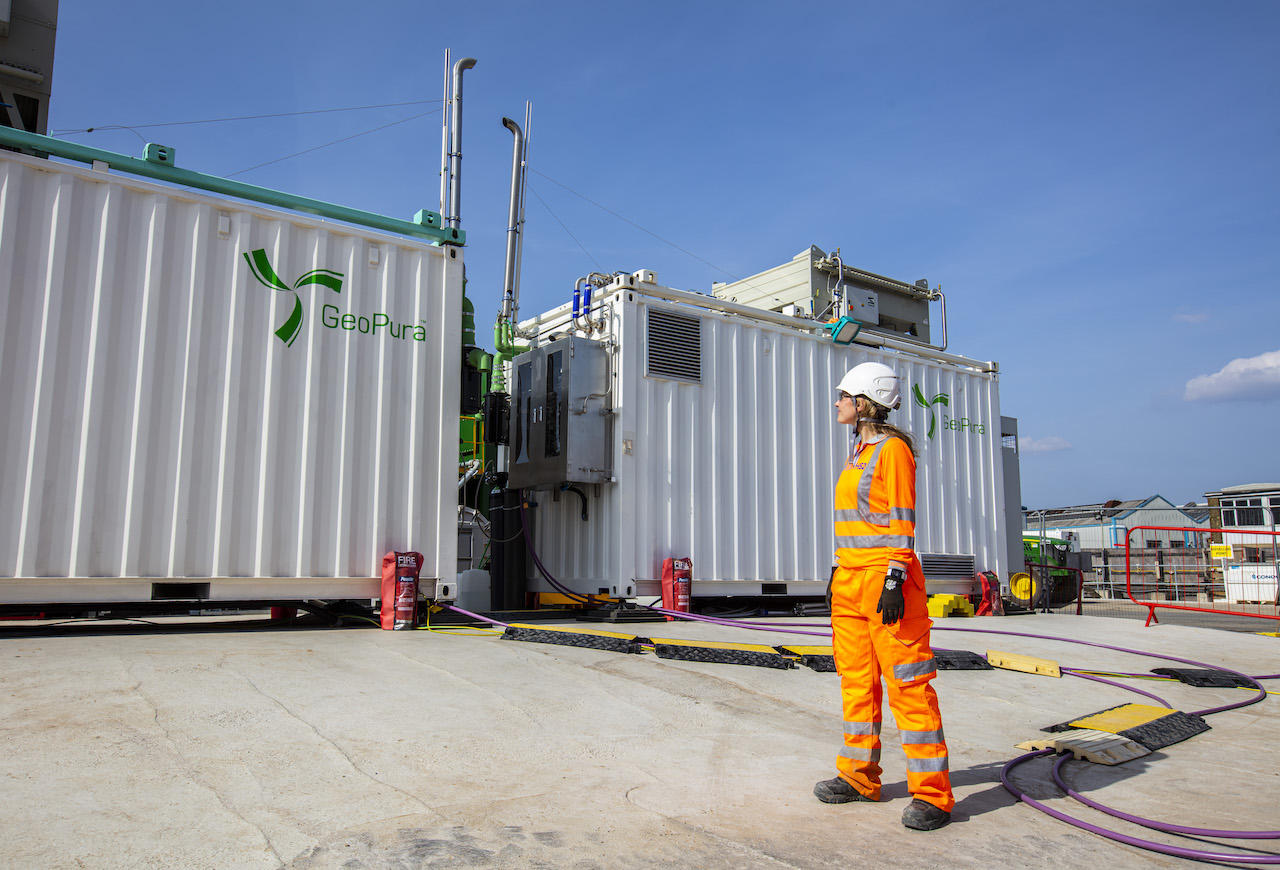GeoPura intends to build a fleet of over 3,600 clean generators by 2033. Backers include Barclays Sustainable Impact Capital, GM Ventures, SWEN Capital Partners and Siemens Energy Ventures.

A group of investors led by Barclays Sustainable Impact Capital (BSIC) and GM Ventures, are investing £36m (€41m) in GeoPura, a fledgling UK off-grid hydrogen power firm.
In addition to GM Ventures – the investment arm of General Motors – and BSIC, the fundraising round also involves sustainable investor SWEN Capital Partners and Siemens Energy Ventures. GM produces hydrogen fuel cells, while Siemens Energy is partnering GeoPura in the business.
GeoPura has been producing its Hydrogen Power Unit (HPU) generators since 2019, offering a clean alternative to diesel generators in hard-to-decarbonise sectors, such as temporary, supplementary, off grid and backup power. The company also produces low-carbon green hydrogen to fuel the generators and transports it to customer sites.
Users thus far have included construction firm Balfour Beatty, UK rail construction project HS2, power provider National Grid and broadcaster BBC. Customers rent the units and pay for the fuel used.
Off-grid green energy
James Ferrier, director, principal investments, at BSIC said that although making the energy grid as a whole greener was vital, industries reliant on fossil-fuel powered generators, such as construction, events and film production, should not be overlooked.
“Establishing tailored methods of off-grid green energy generation such as GeoPura’s Hydrogen Power Unit technology will be crucial for the decarbonisation of these industries,” he said.
GeoPura said the £36m investment would be used to scale up HPU manufacture at its plants in Nottingham and Newcastle upon Tyne in northern England, as well as to increase green hydrogen production to fuel the units, while creating skilled jobs in the process.
It intends to build a fleet of over 3,600 HPUs by 2033, which the firm estimates would displace more than 6m tonnes of carbon dioxide emissions over their life by replacing fossil fuels powered alternatives. It also plans to develop a number of new products to cater for a range of power requirements, such as electric vehicle charging and supplementary grid power.
“We have secured the right mix of investors, forming strategic partnerships that not only provide the funds to enable us to scale rapidly, but also the skills and resources to accelerate the transition to zero emission fuels. With the support of our investors, we can help turn the market on its head and build a green hydrogen economy this decade, not next,” Andrew Cunningham, GeoPura’s CEO, said.
Each generator comes in a 20ft portable shipping container and provides 250kW off-grid power output, along with 216kWh of battery storage. Containers can be combined to provide a 2MW system.
Attractive market niche?
GeoPura’s product occupies a relatively attractive niche for investors within the hydrogen sector, which offers the prospect of a clean energy alternative to fossil fuels in the power and heating sectors.
There is growing momentum for the expansion of the hydrogen sector globally, given the potential for green hydrogen to displace fossil fuels across the energy supply chain. In Europe, investments strategies targeting the hydrogen sector are emerging, while impact-oriented funding has been forthcoming for hydrogen production and hydrogen-fuelled steel manufacturing
The UK government has been keen to foster the hydrogen industry, which it believes can leverage expertise and use infrastructure from the country’s oil and gas industry. It has set a target of 10GW of “low carbon” hydrogen production capacity by 2030.
However, only half of that would be green hydrogen. The other half is projected to come from so-called blue hydrogen, which involves producing hydrogen the traditional way using natural gas as a feedstock, but capturing emissions before they enter the atmosphere and then storing them below ground or under the seabed.
The hydrogen sector has plenty of backers, but others think the hydrogen economy should only have a limited role to play in grid-scale energy provision, especially if the use of blue hydrogen extends the life of the oil and gas industry. They favour investment in renewables and other forms of energy storage, which they say would be more effective in reducing carbon emissions from the power sector, as they could be rolled out faster and potentially more cheaply.
However, that debate is unlikely to dim the view of impact investors on smaller-scale hydrogen technologies, such as GeoPura’s, which offer clean energy in an area of the market where usable low-emissions technologies are thin on the ground.






